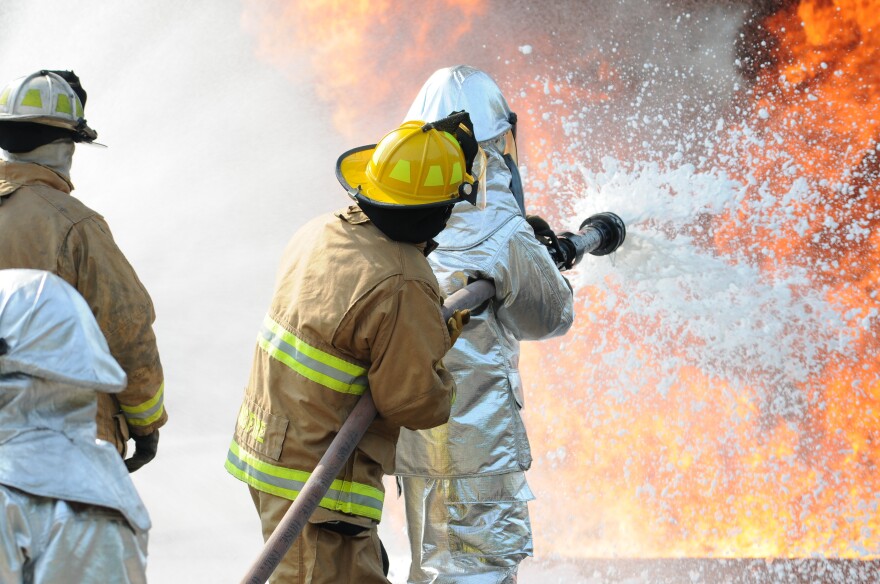Officials with the Air Force and other agencies are asking members of the public to weigh-in on several proposals to provide drinking water to Moose Creek residents who can’t use their wells because of groundwater contamination. The pollution came from Eielson Air Force Base’s use of firefighting foam in years past. On Monday, North Pole City Council members made it clear they believe expanding their municipal water system to Moose Creek is the best alternative.
The North Pole City Council unanimously passed a resolution in Monday’s meeting stating its support for expanding the city’s water system to Moose Creek, because says Mayor Bryce Ward, it’s the best long-term solution to providing drinking water to the community.
“We just wanted to let (the) Air Force know that if this is something that the community is interested in, the city could be a viable option,” he said.
Ward says expanding the water system is the best of seven alternatives outlined in an Air Force study of the groundwater contamination that’s spread from nearby Eielson Air Force Base. The study, which will be presented tonight in a town hall meeting at the Moose Creek Fire Station, includes other alternatives, such as setting up tanks or water-filtration systems at each residence or business affected by the contamination.

“Y’know, (over) the period of 30 years, that water delivery or the maintenance of a water-treatment filter system is quite a bit higher and quite comparable (cost), if you will, to that of a water system,” the mayor said.
The Air Force’s Interim Feasibility Study estimates it’ll cost $34 million to $40 million to expand the system about four miles south to Moose Creek and maintain it over 30 years. Ward says that’ll provide water to 169 parcels in the area where two types of perfluorinated compounds have been found in groundwater at levels that could harm human health.
“Although it is not necessarily the cheapest option,” he said, “it provides the least amount of liability to those involved and affected, and the greatest security over that 30-year period and even longer.”
The Air Force will pay the estimated $25.3 million to build the system, says Monte Garroutte, who manages the state Department of Environmental Conservation’s Eielson contamination-remediation project.
“The infrastructure and all that – yes, they’ll definitely be paying for that,” he said.
But Garroutte says the federal government probably will not pay for maintenance and operation of the expanded water system. He says once the Air Force and community come to an agreement on a drinking-water solution, the agency will then focus on cleaning up the contamination.
Eielson Air Force Base will host a town hall at 6 p.m. tonight to talk about the Interim Feasibility Study. The meeting will be at the Moose Creek Fire Station/North Star Volunteer Fire Station 5, 3481 Old Richardson Highway.
“We still have to go through all the investigation and the feasibility study for the remediation as well, to determine what the possible solutions are,” he said.
Ward says North Pole knows quite a bit about that process, because for years it’s had to deal with a bigger groundwater-contamination problem caused the leakage of sulfolane, an industrial solvent, from the Flint Hills refinery, which the company shut down in 2015.
Ward says the city hopes to hire a contractor this year that, if all goes well, will begin work in the spring on a larger water-system expansion project for homes and business affected by the sulfolane contamination. That project is estimated to cost nearly 100 million dollars, 80 percent of which will be paid-for by Flint Hills.
The mayor says adding the second expansion, to Moose Creek, would enable the city to take advantage of the economies of scale that would result from both projects.



